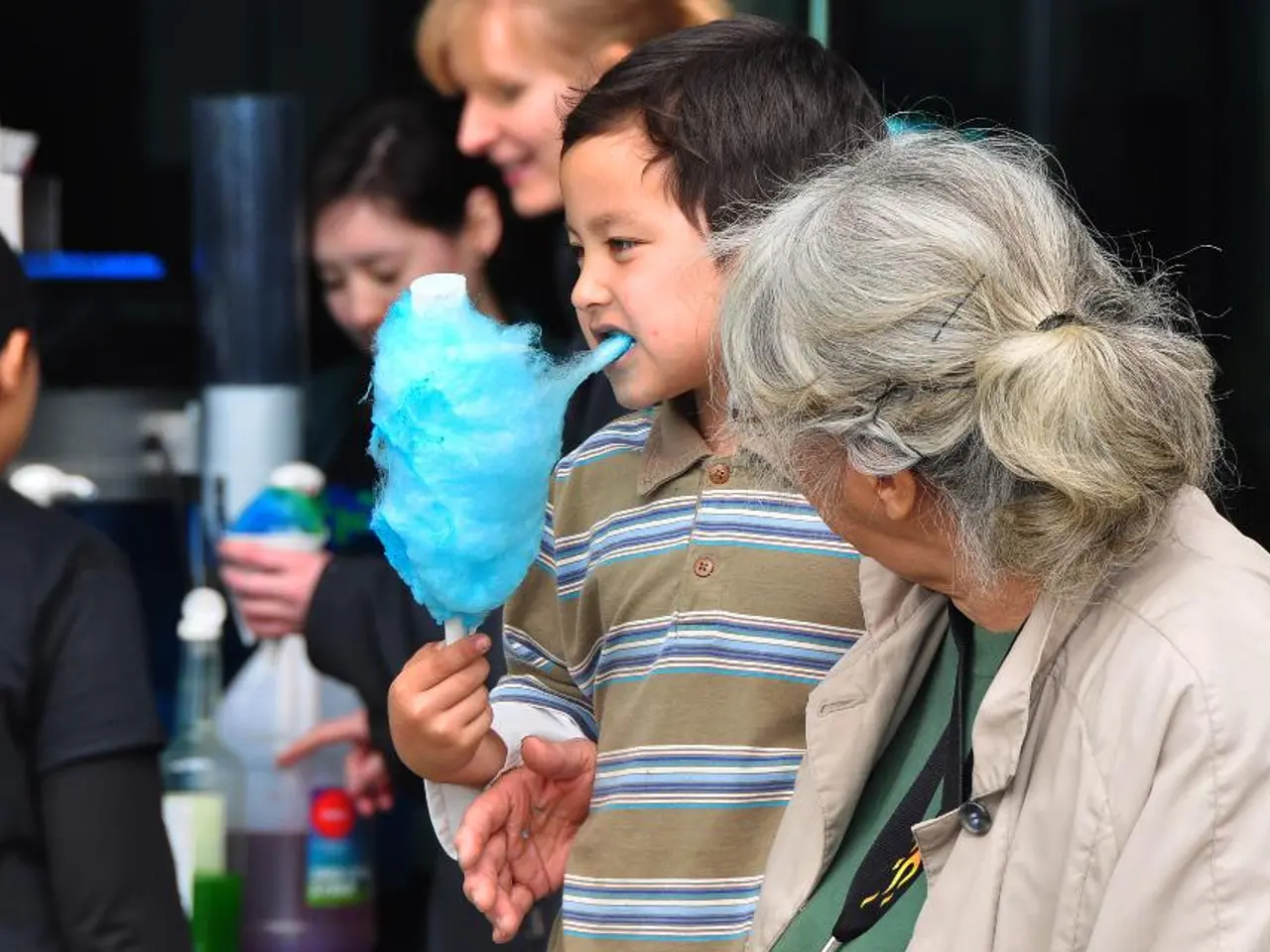Investigating and Assisting Teenage Struggles with Eating Disorders
Eating disorders are complex mental health issues that affect many individuals, particularly young people, around the world. These conditions often serve as a way for people to regain a sense of control over their lives, especially when they feel their life is slipping out of their hands [1].
It's essential to understand that even in severe cases, eating disorders are treatable and curable. A study on psychotherapy for anorexia showed that 41% of patients could be classified as recovered five years after therapy [1].
When someone close to you is struggling with an eating disorder, it's natural to feel overwhelmed. Initial rejection from the affected person is common and should be understood as a desperate solution attempt, not a misinterpretation.
Friends and family should not feel solely responsible for helping someone with an eating disorder. Seeking professional help, such as counseling centers, for initial support is crucial [1]. One effective approach for children and adolescents is Family-Based Treatment (FBT), where caregivers actively manage the re-nourishment process at home, guide the child through weight restoration, and gradually support the development of independence and relapse prevention skills [1].
Effective strategies for family and friends to support individuals with eating disorders include supervising and supporting proper nutrition, especially for children with anorexia, to help restore weight and health [1]. Practicing empathy and nonjudgmental listening, expressing concerns using “I” statements, allows the loved one to share their internal experiences, building trust and collaboration rather than resistance [2].
Collaborative problem-solving, rather than forcing treatment, creates a plan that the individual feels at least somewhat comfortable with [2]. Encouraging early intervention because the sooner treatment begins, the greater the chances for full recovery and better long-term outcomes [2]. Providing emotional support while maintaining caregiver self-care, recognizing that supporting someone with an eating disorder can be draining and that caregivers need help and resources for their own mental health [2].
Fostering healthy eating habits and promoting positive body image at home can support recovery and help prevent eating disorders [1]. Connecting with specialized care centers or support organizations, such as the National Eating Disorders Association (NEDA), can provide further resources for both the individual and their support network [4][5].
Mental illnesses, including eating disorders, have been increasing among young people worldwide for about 20 years, particularly in industrialized nations. The pandemic and accompanying measures such as lockdown have led to a further increase in mental illnesses among young people [6].
It's important to approach someone affected by an eating disorder with compassion and understanding. Accusations or scolding should be avoided. Instead, a supportive and empathetic approach can be effective [3].
References:
[1] Family-Based Treatment (FBT) for Adolescents with Anorexia Nervosa. (2021). National Institute of Mental Health. Retrieved from https://www.nimh.nih.gov/health/topics/eating-disorders/family-based-treatment-fbt-for-adolescents-with-anorexia-nervosa/index.shtml
[2] Helping Someone with an Eating Disorder. (2020). National Eating Disorders Association. Retrieved from https://www.nationaleatingdisorders.org/helping-someone-with-an-eating-disorder
[3] National Eating Disorders Association. (n.d.). Supporting a Loved One. Retrieved from https://www.nationaleatingdisorders.org/learn/general-information/supporting-a-loved-one
[4] National Eating Disorders Association. (n.d.). Treatment and Recovery. Retrieved from https://www.nationaleatingdisorders.org/learn/general-information/treatment-and-recovery
[5] National Eating Disorders Association. (n.d.). Find Help. Retrieved from https://www.nationaleatingdisorders.org/find-help
[6] Eating Disorders in Children and Adolescents. (2021). The Federal Institute for Public Health (BIÖG). Retrieved from https://www.rki.de/DE/Content/Infekt/Kindergesundheit/Kindergesundheitsforschung/Kindergesundheitsberichterstattung/Literatur/2021/05_2021/2021-05-14-kindergesundheitsbericht_kindergesundheitsbericht_2021_deutsch.pdf?__blob=publicationFile
The intricate connection between science and health-and-wellness is underscored in the realm of mental health, particularly when dealing with eating disorders. For instance, a study on psychotherapy for anorexia highlighted that 41% of patients could be classified as recovered five years after therapy, emphasizing the curable nature of even severe cases.
In the health-and-wellness discourse, mental health is a crucial component, especially in addressing issues like eating disorders. This is well demonstrated by Family-Based Treatment (FBT) for adolescents with anorexia, a method that encourages caregivers to play an active role in the recovery process.




